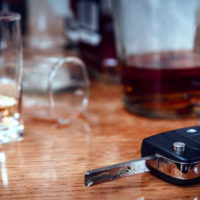Challenging Chemical Test Evidence In DUI Cases

When the prosecutor relies on circumstantial evidence, like the field tests, the overall conviction rate is less than 50 percent (the rate is less than 40 percent in complete refusal cases). However, if the defendant submits to a breath or blood test, the conviction rate rises to over 80 percent (the rate is over 90 percent in blood test cases). Precise statistics vary greatly according to jurisdiction, but the general trends remain in effect.
Obviously, the odds are much longer in chemical test trials. However, it is still possible to challenge the state’s evidence and convince at least one juror that there is a reasonable doubt as to its reliability.
Breath Tests
Most all DUI test cases involve breath test machines. Although today’s Breathalyzers are much smaller and fancier than the ones that preceded them, the underlying technology has not really changed at all since the first Breathalyzers appeared in the 1950s. It’s important for jurors to understand that, in this respect, Breathalyzers are not like TV sets, computers, telephones, contact lenses, and almost every other product that we use every day.
As the name implies, Breathalyzers measure breath alcohol and then estimate blood alcohol content based on the result. That additional step creates the possibility for error.
- Acetones: Breathalyzers register these substances, which are prominent in diabetics, smokers, and other individuals, as ethanol, so the BAC estimate may be off.
- Technique: Breathalyzers are sensitive devices that must be carefully maintained and regularly calibrated, especially if the device has been used frequently and/or recently.
- Mouth Alcohol: If the defendant burped or belched in the fifteen minutes preceding the test, the mouth alcohol volume will create a false reading. Peace officers are supposed to monitor defendants during this fifteen minutes, but sometimes they look away.
- Validation: Generally, the prosecutor uses a technician, who is not a chemist and barely qualifies as an expert witness, to validate the results before the jury. In contrast, to challenge the results, most attorneys partner with degreed chemists or at least graduate-level chemistry students.
These flaws, and others like them, may not be sufficient to overturn the results altogether, but they are most likely enough to create reasonable doubt in a borderline case, such as a .08 or .09.
Blood Tests
Although these chemical samples are much more reliable, peace officers must obtain search warrants if the defendant does not consent, and most officers do not take that extra step.
Whereas breath tests are subject to challenge at the scientific level, blood tests are often vulnerable at the procedural level. These test results often have a long and convoluted chain of custody, because a person extracts the sample at a clinic or hospital, the sample goes to a laboratory for analysis, then it goes to the police evidence locker, and it finally arrives in court. Small irregularities may not be a big deal, but major gaps create the presumption that someone may have tampered with the evidence, particularly in high-profile DUI cases.
At the front end, the person handling the sample is also relevant. For example, was the person who extracted the sample a doctor, a nurse, or a patient care technician? The same thing applies to the person who analyzed the sample.
Reach Out to Experienced Attorneys
DUI chemical test evidence is not absolutely conclusive. For a free consultation with an experienced criminal law attorney in Port St. Lucie, contact Eighmie Law Firm, P.A. Convenient payment plans are available.
Resource:


